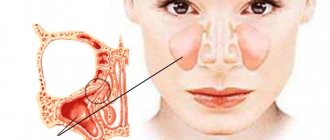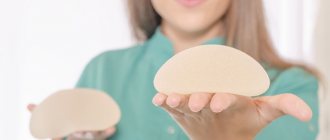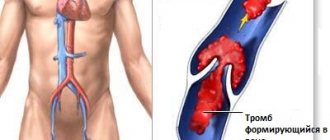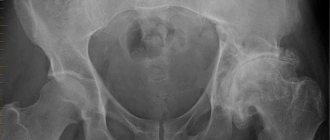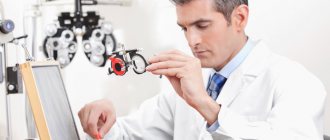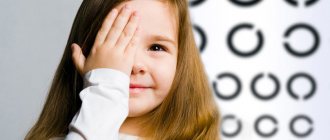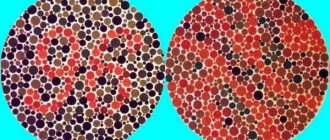| « | Recently, a website dedicated to how homeopathy works appeared on the Internet: HowDoesHomeopathyWork.com. This site contains all the grains of knowledge accumulated over many years of work by scientists from different countries and peoples, and summarized in one single, but absolutely correct thesis, formulated briefly and concisely. | » |
Homeopathy is a sect that tries to be like medicine, affecting the brains of gullible people and even some doctors.
The basic principle of treatment is “like like,” i.e. we treat the liver with the liver - scientifically, you can’t say anything; nevertheless, up to 70% of the population (!) continues to believe in it, and pharmacies are 15% filled with this slag.
How it doesn't work
| « | A patient who forgot to take a homeopathic remedy died of an overdose. | » |
Why do reasonable people consider homeopathy nonsense? Because even a cursory understanding of its principles is enough to realize all its delusion. Look here: according to the theory of shitpaths, water molecules are affected by molecules of the active substance, water remembers this, and then (without the active substance) heals the mortal body. Only here’s the catch: there is no ultra-pure water in nature that would not be influenced by billions of other molecules - it turns out that the water has already remembered all this, too, and you will be treated with the “memory of water” from the toilet. High level of "noise", lol.
All homeopathic medicines “work” according to the given scheme and are diluted about 10,400 times, which contradicts not only pharmacology, but also all chemistry in general. Nothing can work there, since in such dilutions there is not a single molecule of the original substance except water itself. The smallest concentrations of active substances in the body - picofemtoliters (one billionth and trillionth of a milliliter) - contain the most potent substances - hormones.
Only for some reason we can measure cool hormones in nanoconcentrations and see their effect, but magical homeopathy itself is not visible, there is no effect, there are no and there will be no clear explanations why this is so, except perhaps for the (invisible, of course) divine power of memory push off the water lol.
- “What about children and animals? Why is homeopathy “effective” for them? They don’t know that they are being given a placebo!”
They don’t know about placebo ≠ lack of placebo effect. Trying to study the effect in children, animals, or even cell culture is a single-blind experiment: only the subject does not know what they are being given, but the experimenter (the child's parent/pet owner) does. If we also blind the experimenter (that is, he will not know what he is giving to the object - a homeopathic pacifier or just a pacifier), then there is guaranteed to be no difference. In fact, the placebo effect here does not occur in animals or children. It occurs in their owners/parents.
Example
| « | Few people know about this, of course. Killer doctors are hiding a secret! Homeopathy without astrology Has almost zero effect! | » |
The most famous, most publicized and equally useless oscillococcinum from the Boiron company is not substantiated in any way other than standard homeopathic excuses and is not officially recognized by the Cochrane community. That doesn’t stop us from advertising it and selling it for billions, because people believe in advertising, not science, everything about it is complicated. Every year the people of this country purchase lochocalcinum for 2.6-2.9 billion rubles, which is more than 10 million packages.
The FDA included oscillococcinum in its Fraudulent Products List in 2010.
From this we can derive a beautiful economic indicator called “the market of idiocy in Russia”, equal to billions of rubles per year. Let's see, maybe publications popularizing science will be able to do their job, but so far everything is sad. It should be noted the elegance with which you can sell any garbage, even frankly useless medicine, making billions in the vastness of this country.
Example 2
If you still have any doubts that homeopathy is anything other than magical stupidity, then look at the information about “murus berlinensis”. It is an ingredient in the g-pathic anti-anxiety drug made from Berlin Wall dust. Anxiolytic concrete, no less. [1], [2]
Is there scientific evidence of the effectiveness of homeopathy?
Medicine, like any other science, conducts numerous experiments. And all methods and drugs prescribed by doctors must have an evidence base that they are effective and beneficial.
Homeopathy has been on the market for a very long time, but in 2015 the National Health and Medical Research Council of Australia organized a review of these drugs. Scientists have studied all the literature and articles about this method of therapy.
Experts have not found any evidence of the effectiveness of homeopathy. Therefore, they asked homeopaths themselves to provide the evidence that they have in their hands in order to evaluate and use it.
Much attention was paid to experiments that were carried out with the formation of 2 groups:
- people who have been given homeopathy ;
- people who were given a placebo (dummy pill).
Then the results were compared in both groups, where the patients recovered faster or at least improved their condition.
The sample turned out to be very representative:
- 57 drug surveys;
- 176 experiments;
- 61 diseases against which homeopathy was used.
After studying the results, we concluded that there is not a single tablet of this group that has cured any disease.
Since the result of therapy was the same in both groups, this means that homeopathy is equivalent to placebo . This was written about in scientific medical journals, reviews, and a review was published to the masses.
America's Trade Commission has said that homeopathy manufacturers must state on their packaging that there is no evidence that the treatment is effective.
And also that the effectiveness of therapy is based on vague and inaccurate medicine, as it was back in the 18th century.
Doctor, what will happen to me?
| « | We call hostility towards homeopathy homeophobia. Every homeophobe, of course, is a latent homeopath. Shame and fear of his hidden essence as a homeopath pushes the homeophobe to demonstrative allopathic behavior; some go to such an extreme that they find out the etiology and pathogenesis of various diseases. For a person suffering from homeophobia, accepting oneself as a homeopath is the only sure step towards achieving homeostasis | » |
- “Okay, let’s say I believe you and homeopathy doesn’t work. But she’s safe, and I’m too lazy to convince my stupid, stubborn wife. Maybe, well, let him use it?”
At first glance, it’s really like that, there’s nothing wrong with it.
Even the cost of these useless drugs can be survived, although it is often not small. Let's remember the main thing: homeopathy is for the healthy. No, not for prevention, but specifically for healthy people, for whom a little sugar will not harm, and //placebo-/can increase confidence in the future a little.
But the real problems will not go away: in their beliefs about homeopathy, people often ignore treatment with real medicine, and this is, to put it mildly, dangerous. After all, charlatans are not shy about treating cancer, AIDS, and even surgical diseases (requiring surgery) with sweet balls. Who wants to hear from a real doctor that if you hadn’t wasted time on G, you wouldn’t have lost someone’s dear life? Let's live wisely.
A lot of jokes have already been made about the impenetrable stupidity of homeopathic approaches, such as homeopathic coffee from one grain or homo homeovodka formed by filling an empty alcohol bottle with clean water, but here’s what’s much more interesting: making homeopathic contraceptives and distributing them to adherents of the method. It will be very funny, it’s really a pity that the population of idiots will increase.
Homeopathy: what is it?
LIST OF BOOKS AND ARTICLES OF THE SECTIONThere is still a fair amount of confusion associated with homeopathy in the minds of many people. But if someone even knows that homeopathy is treatment with minimal doses of medicinal substances (which, although true, does not fully reflect the essence of the matter), then he is unaware that homeopathy has its own laws, completely different from the laws conventional conventional (allopathic) medicine, and it is highly effective only when treatment is carried out precisely according to these laws. Such misconceptions are not only the lot of non-professionals. And other doctors, who have leafed through several books from some “homeopathic” publishing house, are sure that homeopathy is the same medicine that they studied in medical institutes, with the only difference being that homeopathic . Accordingly, the results of such “homeopathic” treatment in their hands are completely indistinguishable from those of allopathic treatment. Patients draw the conclusion: both allopathy and homeopathy are equally powerless... Therefore, the author of the site believes that explanatory work is necessary so that various “follists”, “Helevites”, etc. cannot deceive patients who turn to them, passing off their methods as homeopathy, as, alas, often happens today. This section of the site contains materials that explain in an accessible form the laws on which real homeopathy , from which one can expect excellent results, as well as materials related to the philosophy, theory and practice of the method and intended for professional homeopaths.
Section articles:
- What is homeopathy?
- Homeopathy: questions and answers
- Public lectures on homeopathy by Dr. L. E. Brasol
- Public lectures on homeopathy by Dr. Luc de Schepper
- Lecture on Homeopathy by J. G. Clarke
- The truth about homeopathy
- Experience confirming the scientific nature of homeopathy
- Homeopathy as a precision tool
- Benefits of Homeopathy
- Revolution in medicine
- The rationality of homeopathy
- The Immortal Truth of Homeopathy
- Two centuries of homeopathy - results and prospects
- American School of Homeopathy and International Hahnemannian Association: Homeopathy at the Top of Success
- Interview with Amarsinh D. Nikam
- Interview with Andre Saint (1)
- Interview with Andre Saint (2)
- Interview with Jeremy Sherr
- Interview with Luc de Schepper (1)
- Interview with Luc de Schepper (2)
- Interview with David Little (1)
- Interview with David Little (2)
- Interview with David Little (3)
- Interview with Robin Murphy
- Interview with Carl Robinson
- Interview with Farokh Master
- Interview with Pawan Pareek
- Interview with Daksha Vaishnav
- Interview with Harris Coulter (1)
- Interview with Harris Coulter (2)
- Interview with Julian Winston (1)
- Interview with Julian Winston (2)
- Interview with Robert Jutte
- Interview with Manfred Müller
- Interview with Vaikuntanath D. Kaviraj
- Interview with Peter Gregory
- Interview with George Vithoulkas (1)
- Interview with George Vithoulkas (2)
- Speech by George Vithoulkas in the Swedish Parliament at the ceremony for awarding him the Alternative Nobel Prize
- Letter from George Vithoulkas to the Editor of Homœpathic Links
- New effective methods of teaching homeopathy
- Advice to Students
- Arsenal of homeopathic surgery. Brief instructions for homeopathic treatment of the most important external injuries
- Homeopathy at the patient's bedside. Clinical observation of a homeopath
- Plague and its homeopathic treatment
- Cholera and its treatment with camphor according to Dr. Roubini
- Cholera. Its essence and ways to combat it
- Measles and its treatment with homeopathic remedies
- Measles and its treatment
- Diphtheria and its treatment
- What works better for diphtheria - serum or homeopathic treatment?
- Hemorrhoids treatment
- Typhoid fever
- Whooping cough. Prevention and treatment of it with homeopathic remedies
- Scarlet fever and its homeopathic treatment
- The role of high temperature in diseases and should it be reduced?
- Sciatica
- Recommendations for homeopathic treatment of skin diseases
- Simplicity of homeopathic practice
- Why surgeons should be forced to study homeopathy
- Homeopathic treatment for patients with multiple sclerosis
- Keys to becoming a successful doctor
- Homeopathy for babies: pleasant medicine for a pleasant life
- Homeopathic remedies for colds, runny nose, cough, flu
- Polypharmacy and medication rotation
- The practice of tautopathy in the era of classical homeopathy. Literature review
- The Muller method - expanding your homeopathic toolkit
- Balance between allopathy and homeopathy: where are we, twenty years later?
- Homeopathy and holidays
- Hypersensitive people: hope and understanding through homeopathy
- About choosing a homeopath
- Ethics in Homeopathy: Methods to Avoid in Practice
- Hahnemannian antimiasmatic prescription
- What Hahnemann Really Said About Miasma
- Diseases of humans and animals: similarities and connections from the point of view of homeopathy
- Veterinary repertory: what repertory do veterinarians need?
- How to avoid homeopathic mistakes - the right treatment for your pets and yourself
- In search of vitality
- The crisis of classical and modern thought
- Miasmas in classical homeopathy
- In the footsteps of Hahnemann
- Dose and potency according to Hahnemann
- Andre Saint about LM potencies
- Can homeopathy be dangerous?
- Advanced methods of Hahnemann. LM Potency: Theory and Practice (book by David Little)
- Patient management
- Management of the patient after the first dose of medication
- G. N. Guernsey and his concept of key symptoms
- Concept of constitution in homeopathy
- Constitutional types. Evaluation of this concept in relation to homeopathic prescriptionnew!
- Constitution and chronic diseases. The importance of constitutional symptoms from the point of view of G. Jahr
- Homeopathic method by Francisco Eizayaga: model of layers
- Miasmas, nosodes and essences
- The influence of the moon on the human body
- One hundred and forty types of pain found in the repertory
- Effect of homeopathic medicines for acute abdomen
- Hahnemann's miasmatic theory and miasmatic remedies
- Sycosis
- How, why, when and how many times to repeat the dose
- Fever and homeopathy
- Why homeopathy is thriving in India
- A day in the life of a homeopathic hospital
- Some Thoughts on Suppression
- A new theoretical approach to the homeopathic law of similars. How the condition of parents during pregnancy can determine the remedy for the child
- Some notes on headaches in children
- Runny nose in children
- Fear and homeopathy
- Homeopathy and autism: a unique opportunity for change
- Boenninghausen logic
- How to give birth to healthy children
- Factors that interfere with homeopathic treatment
- An innovative proposal for scientific alternative medical journals
- The need for internal training of a classical homeopath
- Continuum of unified theory of disease
- The never-ending problem of antidotes
- Parting words to students
- The reasons for our failures
- Reasons for failure in homeopathy
- Drawing the dividing line: homeopathy or not homeopathy?
- Prognosis and homeopathy: factors influencing the prognostic assessment of the results of homeopathic treatment
- Homeopathy versus speculative medicine
- An Open Letter to the Members and Board of the American Institute of Homeopathy
- Hering's law: law, rule or dogma?
- Hering's Law - a reliable tool for homeopathic therapy
- Hering's law: history of creation, law or rule, practical significance
- Letter to a Canadian Friend Concerning American Varieties of Homeopathy
- Sankaran's "sensation-kingdom" method harms homeopathy due to the lack of a fundamental scientific basis
- "Single Dose Mania" - Many a wonderful prescription has been ruined because the dose was not repeated when needed.
- Samuel Hahnemann's reply to Divyer Chabret
- Magic or science?
- Letter from Africa (1)
- Letter from Africa (2)
- Adventures of homeopaths in Africa
- Why homeopathy is thriving in India
- The place of homeopathy in the Russian healthcare system
- Esoteric and exoteric views on homeopathy - two sides of the same coin?
- A Forgotten Aspect of Hahnemann's Theory—The Relationship Between Medicine, Philosophy, and Ethics
- James Tyler Kent (1849–1916) and the dangers of medical fundamentalism
- Boundaries or bridges: what should be the relationship between homeopathy and traditional medicine?
- Facts and theories - Hahnemann's balancing act
- About the action of medicinal substances
- How to Practice Homeopathy
- Scientific medicine in excelsis
- What not to do
- Repertorization
- Cases from practice
- Children's homeopathy
- Treatment of mental retardation in children
- Homeopathic Philosophy: Implications for the Treatment of Chronic Diseases
- Difficulties in prescribing a homeopathic medicine
- The ratio of medicinal symptoms to painful ones
- Homeopathy and Pediatrics
- The role of anamnesis in homeopathic prescription
- Meaning of symptoms
- A Brief Overview of the Philosophy of Homeopathy
- The comparative value of symptoms in the choice of remedy
- How to obtain and organize symptoms for grouping and systematization
- Necessary for correct purpose
- Letter from Carroll Dunham
- Symptoms, their study, or How to work with a patient
- Freedom of opinion and action in medicine
- Provings
- Choosing a Homeopathic Medicine
- The Ideal Cure, Patient and Medicine
- Children's types
- Homeopathic treatment of certain heart diseases
- Homeopathy for mother and baby
- Homeopathy in theory and practice
- Evolution of homeopathy
- Unicism and pluralism
- Choosing a Homeopathic Medicine
- Drug Relationships
- Monotony
- Cold. Prevention and treatment
- Hering's Preface to the American Edition (1845) of Chronic Diseases
- Minor Works of Dr. J. T. Kent
- Small works of K. von Bönninghausen
- A Guide to the Treatment of Diseases According to Hahnemann's Method (book by Dr. Richard Hughes)
- Studies in the Philosophy of Healing (collection of papers by Dr. Cyrus M. Boger)
- Homeopathy in Medicine and Surgery (book by Edmund Carleton)
- Some Clinical Observations (book by Dr. Erastus I. Case)
- The Homeopath's Handbook (book by Dr. J. G. Clarke)
- How healing miracles are performed. A New Path to Health (book by J. Ellis Barker)
- New life for the old. How to Cure the Incurable (book by J. Ellis Barker)
- Homeopathy in First Aid (book by Dr. Dorothy Shepherd)
- Homeopathy in Epidemic Diseases (book by Dr. Dorothy Shepherd)
- More on the magic of small doses (book by Dr. Dorothy Shepherd)
- Selected Articles by Dr. Dorothy Shepherd
- Leading Homeopathic Medicines for Pneumonia (book by Drs A. and D.T. Pulford)
- On neuralgia, its causes and remedies, with a chapter on angina pectoris (book by Dr. J. Compton Burnett)
- Cataract: Its Nature, Causes, Prevention and Treatment (book by Dr. J. Compton Burnett)
- The Treatability of Cataracts with Medicine (book by Dr. J. Compton Burnett)
- Ringworm: Its Constitutional Nature and Treatment (book by Dr. J. Compton Burnett)
- Diseases of the Skin: Their Constitutional Character and Treatment (book by Dr. J. Compton Burnett)
- Prevention of Congenital Malformations, Defects and Diseases through Maternal Drug and Dietary Treatment During Pregnancy (Report by Dr. J. Compton Burnett)
About the author · Friends · Contact · Updates · Guest book · Site map
More
Homeopathic first aid
- Quackery;
- A fascinating story of many years of experience of “treatment” with homeopathy, told by a patient;
- Peas of Discord;
- What's wrong with homeopathy;
- Good analysis of the arguments;
- A look at homeopathic treatment of infections;
- Innovative drugs.
Home reading
- Homeopathic heroin;
- Komarovsky for people;
- English wrestling site;
- More PubMed;
- A little funny;
- Edzard Ernst;
- A systematic review of systematic reviews of homeopathy;
- WHO warns against using homoeopathy to treat serious diseases;
- Homeopathy effective for 0 out of 68 illnesses, study finds;
- Still no evidence for homeopathy (2016);
- The best news of the fall '16 season: in the USA it is now mandatory to write "unscientific" on homeopathic sweets;
- Homeopathic honesty of the Rossiyskaya Gazeta, the official publication of the Government of the Russian Federation.
- Beat the homeopaths, mock them.
- The Suffering Middle Ages. What's wrong with medical education in Russia;
- About the most effective method of treating helminthiases - homeopathic!
- Analysis of a published “study” of a homeopathic remedy.
| [ + ] Homeopathy is hardly real medicine, lol. | |
| Not good | Homeopathy • This country • Reflexology • Dietary supplements • Chiropractor (Osteopathy • Manual therapy) • Vertebroneurology • Physiotherapy (tDCS) |
| Not funny at all | HIV dissident • Anti-vaxxer • Charlatan • RSP |
| Meta | Average temperature in the hospital • Phallic reductionism • Nobody gives a shit • Lexical reduplication • Marmont syndrome • • Fucking |
In small doses according to the principle of similarity
More than 200 years ago, this method was discovered by the German physician Samuel Hahnemann. Noticing that the symptoms of quinine poisoning were very similar to malaria, and finding many of the same correspondences between other substances and diseases, he suggested that small doses of certain substances could treat the corresponding diseases. Despite the fact that the principle of similarity was known back in the time of Hippocrates, Hahnemann significantly developed it. He discovered that ultra-low concentrations of active substances are not only safer, but also, oddly enough, more effective. Hahnemann made another discovery: the healing properties of drugs increase depending on how vigorously and for a long time the container in which the substance was diluted was shaken. Throughout his long life (the scientist did not live long enough to reach the age of 90), Hahnemann treated his patients with homeopathy, achieving excellent results. The German doctor had many detractors and supporters. Thus, a follower of Hahnemann in Russia was the doctor Semyon Korsakov , who invented a special method of diluting medicinal substances - the so-called Korsakov dilutions, which are still widely used in Russia to this day. Our compatriot also came up with the very popular form of sugar balls for homeopathic medicines.
To eat or not to eat - that is the question. Should you trust homeopathy? More details
Symptoms of bronchial asthma
The main symptoms by which bronchial asthma is diagnosed are breathing problems, including:
- paroxysmal cough, which intensifies at night, after physical activity, in the cold,
- shortness of breath, when it is more difficult for the patient to exhale than to inhale,
- breathing is accompanied by wheezing, whistling sounds heard at a distance,
- sudden suffocation is the main clinical symptom of asthma.
Asthma symptoms can either be constant, worsening during specific seasonal periods (for example, in May-June when plants are flowering), or appear only during the cold season. The nature of the disease is such that between attacks, patients may not show any signs of illness.
To accurately determine the diagnosis of asthma and its form, only the classical picture of the disease is not enough, since many respiratory tract diseases have similar symptoms. It is necessary to contact our clinic for an accurate diagnosis.
Types of disease
Bronchial asthma as a disease can be:
- exogenous, or allergic (occurs against the background of an allergic reaction of the body to a provocative environmental factor),
- endogenous (as a consequence of internal causes),
- mixed - the patient simultaneously has both an allergic and a non-allergic component.
When diagnosing allergic asthma, it is important to establish what causes it and, if possible, eliminate contact with this allergen.
The non-allergic form of the disease is determined by the key factor that causes it.
When, due to the action of pathogenic viruses and bacteria, inflammatory processes occur in the respiratory tract, infection-dependent . This type of endogenous asthma is the most common.
Due to intolerance to aspirin and similar drugs, a person experiences asthmatic symptoms, which indicate the presence of aspirin-induced bronchial asthma.
Due to the destructive effects of harmful production factors in production, workers may develop occupational asthmatic disease. Choking attacks usually occur in the workplace; Asthma symptoms may improve or disappear when leaving the work area.
